Correct deployment
Land
After activating your beacon, position it in a clear and open area. The aerial must be vertical pointing towards the sky, preferably with 180 degrees or more of visibility, away from trees, buildings, mountains, and vehicles. If possible, position it at the highest point if you are within a deep ravine or gully. This will ensure maximum effectiveness for detection.
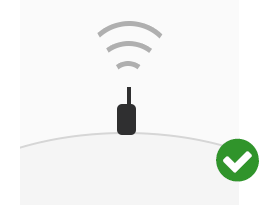

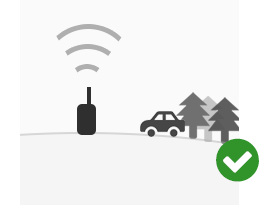

Water
EPIRB
Attach the Emergency Position Indicating Radio Beacon (EPIRB) using the lanyard to the person, vessel, or life raft (nothing that will sink). The EPIRB is designed to float vertically in the water. If you are sitting in a life raft and prefer to have the EPIRB inside the life raft, ensure the aerial is always vertical for the best chance of detection. Ensure your body is not covering the beacon. See how to activate a float-free EPIRB.
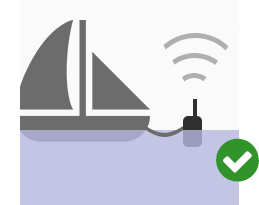

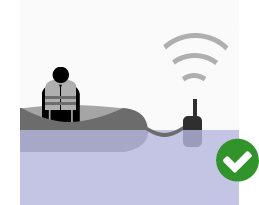
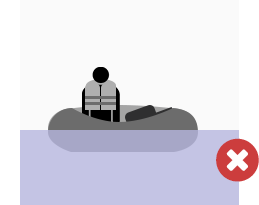
PLB
Your Personal Locator Beacon (PLB) should be attached to the upper portion of your lifejacket, above water. PLBs do not float vertically in the water as the aerial is top heavy and the aerial must be pointing vertically towards the sky. Do not hold the PLB as you might inadvertently cover the GPS transmission and prevent detection.
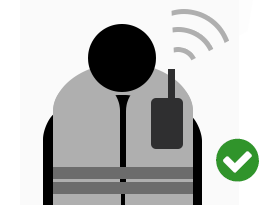
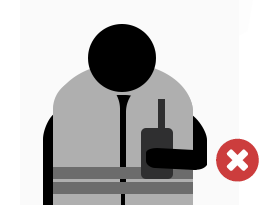
Air
After landing, for a EPIRB or a PLB, follow the deployment instructions above, depending on whether you're on water or land.
Emergency Locator Transmitter (ELT) beacons should automatically activate if a strong impact has been sustained, but you should check your beacon after landing to ensure it's transmitting a signal.
Additional safety
Consider wearing a PLB in addition to an EPIRB or ELT in case the primary beacon is damaged.





Main menu